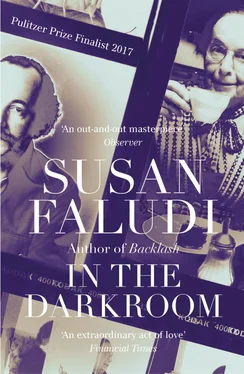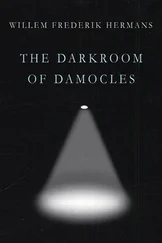“Finally, O Jew, your day is dawning!” József Kiss, son of poor Orthodox parents and acclaimed as turn-of-the-century Hungary’s “most popular” poet, exulted in his first collection of verse, published in 1868. “Now you, too, have a fatherland!” By the end of the century, Jews had full religious standing, too. The 1895 Law of Reception elevated Judaism to a “received” religion, recognized by the state.
The Magyar nobility had its reasons for facilitating the rise of a Jewish bourgeoisie. To accomplish such liberal reforms as civil marriage and nationalized education, the aristocrats enlisted Jews to counter the influence of the Catholic clerics. Also, Hungary desperately needed to modernize and industrialize. In the enterprise vacuum that yawned between its complacent nobles and gentry and its wretched peasants, the Jews formed an essential bourgeois class. The Christian noblemen also had political reasons for aiding Jewish assimilation: the nineteenth-century Magyar electorate was 5 percent short of a majority in a multicultural region teeming with restive Germans, Slovaks, Romanians, Ruthenians, Serbians, Slovenians, Croatians, and other ethnic minorities, all contesting for their rights. The Magyars made up the deficit through artful use of an 1868 “nationalities” law—originally intended as an act of tolerance for minority cultures and languages—to enforce a linguistic Magyarization. Henceforth, anyone who declared Hungarian as their primary language in the national census would be declared a Magyar. Jews, more than other minorities, took the option. By the century’s end, more than 75 percent of Hungary’s Jews claimed Hungarian as their mother tongue (compared with only 54 percent of its Catholics), and the Magyar population had thus magically risen to 51.4 percent. In a country where voting was limited to educated and propertied taxpayers, affluent Jews in urban districts enjoyed significant electoral clout; in Budapest, Jews were more than 20 percent of the population, and 40 percent of the voters. fn1
Whatever the self-serving motives of the old aristocracy, the benefits for the bourgeois Jews of Hungary were unparalleled. “No country in Europe was more hospitable to Jewish immigration and assimilation and no country had more enthusiastic support from its Jews than the pre–World War I Hungarian kingdom,” noted historian István Deák observed. And maybe no Jewish population did more to bring its country into the industrial age. By the 1900s, Hungarian Jews had launched and were running most of the country’s major banks, heavy industries, mining concerns, and the largest munitions plant. Thirty of the fifty founding members of the National Association of Hungarian Industrialists were Jews. For their contributions, the patriarchs of 346 Hungarian Jewish families were granted the ultimate compliment in the aristocracy-obsessed empire: titled ennoblement.
Wealth was only one aspect of the Golden Age’s yield. The era also ushered in a remarkable flowering of creative and professional talent. By the 1910s, the 5 percent of the population that was Jewish represented half of Hungary’s doctors, 45 percent of its lawyers and journalists, more than a third of its engineers, and a quarter of its artists and writers. Hungarian Jews established, financed, and wrote for many of the nation’s important newspapers, literary journals, publishing houses, theaters, cabarets, and cinema, and forged the modern practice of photography. fn2And they were instrumental in creating a cultural environment in which artists and intellectuals, both Jewish and Christian, could thrive. A notable segment of the gentile literati embraced that collaboration, pinning to it their greatest hopes for a cultural renaissance. “I see before me the prototype of a new people,” Christian poet Endre Ady exulted in 1917. “This would be the solution to all our problems and History’s outstanding event, if it could be true.” And disastrous if it failed: “We either produce a new people,” he concluded, “or the deluge will follow.”
Hungary’s assimilating Jewish population dedicated itself with a formidable intensity to producing that new people. Its most prominent members led a decades-long and wildly successful campaign to “Magyarize” the country, modernizing and promulgating Hungarian as the mother tongue, championing Hungarian handicrafts and viniculture (the worldwide fame of Hungarian Matyó embroidery and Tokáj wine are thanks largely to their Jewish promoters), and organizing the fusion of the three provincial backwaters of Buda, Pest, and Óbuda into a city capital that, by the end of the millennium, would be a cultural mecca rivaling Paris and Vienna. “Their contribution to the development of their country was greater than that of any other European Jewish community,” historian Jacob Katz wrote. More than anyone else, the Jews invented what it meant to be Hungarian. And with that, invented “a fatherland” into which their day could dawn.
Конец ознакомительного фрагмента.
Текст предоставлен ООО «ЛитРес».
Прочитайте эту книгу целиком, купив полную легальную версию на ЛитРес.
Безопасно оплатить книгу можно банковской картой Visa, MasterCard, Maestro, со счета мобильного телефона, с платежного терминала, в салоне МТС или Связной, через PayPal, WebMoney, Яндекс.Деньги, QIWI Кошелек, бонусными картами или другим удобным Вам способом.












